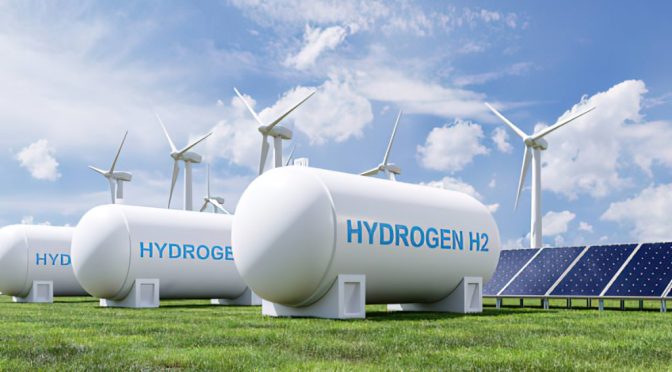

The Franco-German declaration made on Sunday, the 60th anniversary of the Elysee Treaty, states that Germany will join a new project to build a hydrogen pipeline between Spain, Portugal, and France.
By 2030, the H2Med project, which will connect Portugal, Spain, France, and now Germany, will supply approximately 10% of the hydrogen demand for the European Union.
Green hydrogen, produced through electrolysis with renewable energy, will be transported via the pipeline under the Mediterranean Sea.
H2Med is expected to be able to provide approximately two million metric tons of hydrogen annually, according to the Spanish government.
It comes at a time when Europe is rushing to switch from fossil fuels to cleaner energy and reduce its reliance on Russian energy.
“Stepping up our investments in the technologies of tomorrow, particularly renewable and low carbon energies,” said German Chancellor Olaf Scholz and French President Emmanuel Macron.
At the end of April 2023, a joint working group comprised of representatives from both nations will issue “recommendations on our strategic choices regarding hydrogen development.”
“We started to talk about a strategy for what we want to do from an energy point of view,” Macron said after hosting Scholz in Paris.
“We want hydrogen to be available in large quantities and at affordable prices as the gas of the future,” Scholz stated.
“This is a technological advance that we can only achieve together. And we have also agreed closely that we want to achieve this together,” Scholz continued.
The announcement was well-received by Spanish Prime Minister Pedro Sanchez, who tweeted that it “definitely strengthens its pan-European dimension.”
He added a muscle emoji to his message to show his support for European energy sovereignty.
It was anticipated that the pipeline would cost €2.5 billion ($2.6 billion) when Madrid, Paris, and Lisbon agreed in December to construct it. However, the cost increase resulting from Germany’s inclusion was not immediately apparent.
A beautiful and lively garden can add life to your outdoor space and make it… Read More
Teams working in marketing and digital are familiar with the challenges of striking a balance… Read More
DafaNews, a prominent platform providing real-time sports updates and in-depth analysis, has launched “The Game… Read More
Travel has a way of enriching the soul, offering experiences that shape perspectives and create… Read More
The commercial real estate industry is changing rapidly, driven by technological advancements, sustainability initiatives, and… Read More
Zoom Tasks, a new AI-powered task management tool integrated into Zoom Workplace, has been formally… Read More